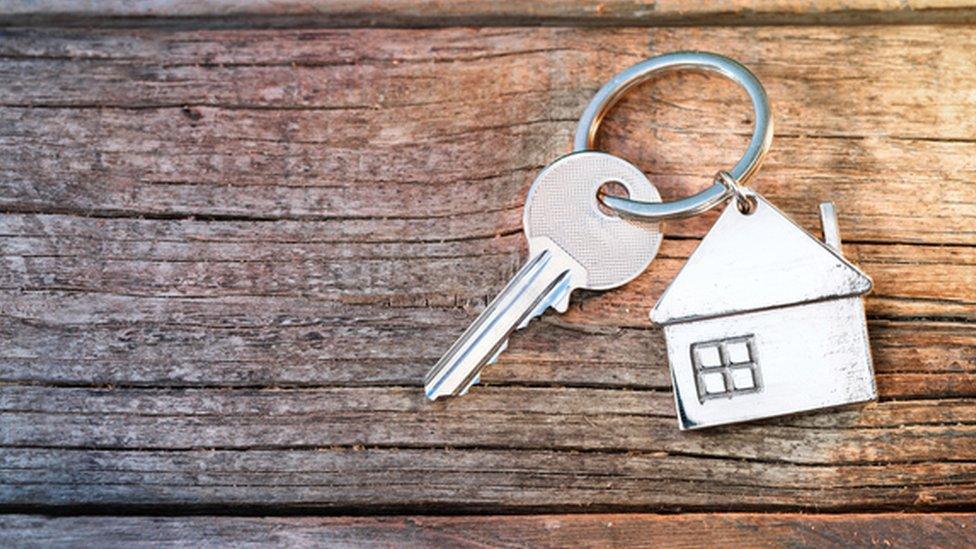Coronavirus: Renters ‘more at risk from economic downturn’
- Published

Renters are likely to be hit harder than homeowners from an economic downturn during the coronavirus crisis, a think tank has warned.
The Resolution Foundation said homeowners were “relatively well protected” compared to previous slumps.
But renters were more likely to work in affected industries and spend more of their income on housing, it added.
The government said it was taking "unprecedented action" to protect people during the virus outbreak.
For homeowners, the government has agreed with lenders that those facing financial difficulties can apply to defer mortgage payments for up to three months.
Ministers have also announced a complete ban on eviction of private and social renters for three months in England and Wales.
The Resolution Foundation said private renters were more exposed to an economic shock, spending around a third of their income on housing, compared to 13% for homeowners.
Low interest rates would also help those with a mortgage, and in its latest Housing Outlook report, the think tank noted that homeowners were also more likely to hold more than £10,000 in savings.
It added that social housing tenants have been particularly affected by the economic impact of lockdown measures against the virus.
The Foundation reported that four in five work in industries directly hit by the restrictions, such as hospitality, travel and retail, are unable to work from home, or must care for children whilst schools remain closed.
By contrast, only around half of homeowners found themselves in a one of those situations.
Government steps
The three-month mortgage holiday for struggling homeowners will also apply to landlords whose tenants fall on hard times.
The government is also temporarily making the housing benefit system more generous by increasing it to cover 30% of the market average rent in each area.
The Resolution Foundation said this benefits change was welcome, but renters would still face “significant shortfalls” if they lost their jobs.
It also warned the boost could push families above the benefit cap, which restricts the total benefits paid.
A suspension of that cap would ease pressures on those renting privately, the Foundation suggested.
The Foundation's principal research and policy analyst Lindsay Judge said: “With housing costs often being the single biggest fixed expenditure for families, the ongoing crisis will cause housing pressures to mount as people struggle to pay their bills."
A total three-month ban on evicting renters was announced by the government last month, following pressure from opposition parties and campaigners. A previous version of the ban would have only covered new eviction proceedings, not those already in the court system.
A similar ban in Scotland could prevent new evictions for up to six months for those struggling with arrears due to the virus.
A spokesman for the Ministry of Housing, Communities and Local Government said: "We're protecting tenants by banning evictions for at least the next 90 days, have launched schemes to keep people in their jobs and support the self-employed, announced a £500m hardship fund, and have increased the amount of universal credit and Local Housing Allowance people receive."